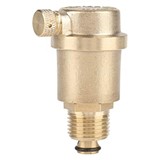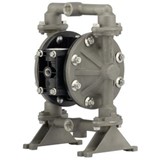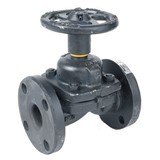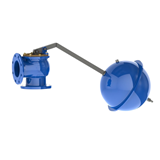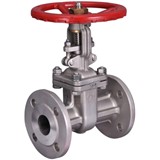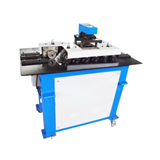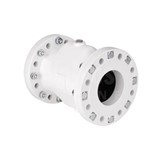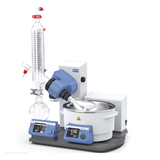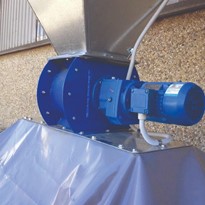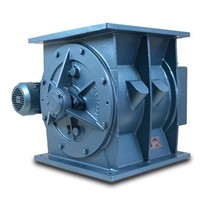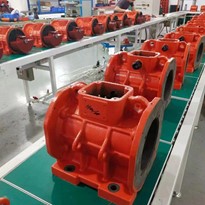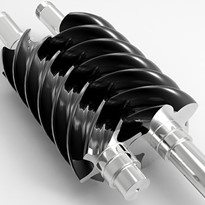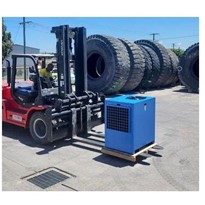What are Rotary Airlock Valves?
Rotary airlock valves are mechanical devices that are used to control the flow of materials from one chamber to another in a pneumatic conveying system. The valve consists of a rotor that rotates within a housing, creating a seal between two chambers. As the rotor turns, it effectively allows material to flow from one chamber to another, while also preventing air from escaping. This is important in many industrial processes where it is critical to maintain a consistent pressure within the system.
Rotary airlock valves are commonly used in industries such as food processing, plastics, cement, chemicals, and pharmaceuticals. They are particularly useful in applications where there is a need to control the flow of materials, as well as maintain a clean environment. For example, in food processing plants, rotary airlock valves are used to prevent contamination of the product, while also controlling the flow of ingredients.
How do Rotary Airlock Valves work?
The basic operation of a rotary airlock valve is quite simple. The valve consists of a housing with two ports, one on either side. The ports are connected to different chambers in a pneumatic conveying system. The valve also has a rotor that rotates within the housing, creating a seal between the two chambers.
As the rotor turns, it creates a pocket between the blades and the housing. As material flows into the valve, it fills this pocket. As the rotor continues to rotate, the material is then discharged into the downstream chamber. The pocket is then refilled with more material, and the process continues.
There are two important considerations when it comes to the operation of rotary airlock valves. The first is the size of the valve. This will depend on the size of the material being handled, as well as the flow rate required. The second consideration is the clearance between the rotor and the housing. This clearance must be small enough to prevent air from escaping, but large enough to allow material to flow through.
Advantages of Rotary Airlock Valves
There are several advantages to using rotary airlock valves in industrial processes. Firstly, they are very efficient at controlling the flow of materials. They are also very reliable, with a long service life and minimal maintenance requirements. Additionally, they are easy to clean and sanitize, which is important in applications where hygiene is critical.
Another advantage of rotary airlock valves is their ability to handle a wide range of materials. They are suitable for handling powders, pellets, granules, and even liquids in some cases. This makes them very versatile and well-suited to many different industrial applications.
Conclusion
Rotary airlock valves are critical components in many industrial processes. They are efficient, reliable, and versatile, making them an excellent choice for controlling the flow of materials in pneumatic conveying systems, dust collection systems, and other material handling applications. Whether you are working in food processing, plastics, cement, chemicals, or pharmaceuticals, rotary airlock valves are likely to play an important role in your operations.



